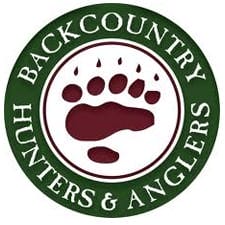
USA -(Ammoland.com)- Recently two concerned Coloradans documented violations by off-road vehicle users that helped law enforcement officers uphold laws intended to promote solitude, conserve public lands and waters, and sustain fish and game. For their efforts, BHA presented these citizens with $500 rewards.
Driving a vehicle off-road or on a non-motorized route on national forest lands is a violation of federal law. The Grand Mesa, Uncompahgre and Gunnison national forests, collectively “GMUG,” have engaged the public in designating specific routes for motorized and non-motorized travel through the travel management rule.
Violations do occur, more often during hunting seasons when hunters are looking for access or retrieving game. Travelling off route while hunting or fishing on public lands in Colorado comes with a 10-point hunting license penalty assessment and a $280 fine with Colorado Parks and Wildlife.
Molly Cannon of Gunnison County reported two vehicles on a non-motorized trail in the Farris Creek drainage during muzzleloader season in the Gunnison NF.
Both hunters were issued a violation notice for traveling off route while hunting. Information on the incident was forwarded to CPW for the penalty assessment to the hunters. Cannon will be rewarded for assisting law enforcement with information, photographs and location of the violations.
In a separate incident, Jeffery Pike, of Crested Butte, notified law enforcement of an all-wheel motorcycle traveling a half-mile off trail to retrieve an elk. When officers pursued the report and investigated the area, the hunter realized he was off trail, admitted his violation and paid the fine.
Mike Fuller, Forest Service law enforcement officer for the Gunnison NF, explains: “It is difficult for law enforcement officers to cover all the areas of this 3 million-acre forest. We rely on the public to assist us by reporting illegal activity and other resource impacts to our public lands.”
According to Tim Brass, BHA’s state policy director, “Our organization has an OHV reward fund program to help educate hunters and OHV users of the need to stay on designated routes.”
The public is encouraged to notify authorities of off-road abuse. BHA will reward these individuals for reporting observations of illegal activity or abuse to law enforcement. “After successful prosecution or payment of fines, BHA will offer up to $500 per incident/report,” Brass added.
To learn more about BHA’s OHV reward fund, click here.
Backcountry Hunters & Anglers is the sportsmen’s voice for our wild public lands, waters and wildlife.
 About Backcountry Hunters & Anglers:
About Backcountry Hunters & Anglers:
Our freedom to hunt and fish depends on habitat. While many of us enjoy hunting and fishing on a range of landscapes, including farm fields and reservoirs, there is something special – even magical – about hunting deep in the backcountry or fishing on a remote river.
Wilderness hunting and fishing deliver a sense of freedom, challenge and solitude that is increasingly trampled by the twin pressures of growing population and increasing technology. Many treasured fish and wildlife species – such as cutthroat trout, grizzly bear and bighorn sheep – thrive in wilderness. Others, like elk and mule deer, benefit from wilderness. From the Steens Mountain Wilderness in Oregon to the Frank Church-River of No Return Wilderness in Idaho and the Boundary Waters of Minnesota, BHA members treasure America’s wilderness system and strive to add to it.
We take the advice of Theodore Roosevelt: “Preserve large tracts of wilderness … for the exercise of the skill of the hunter, whether or not he is a man of means.”
